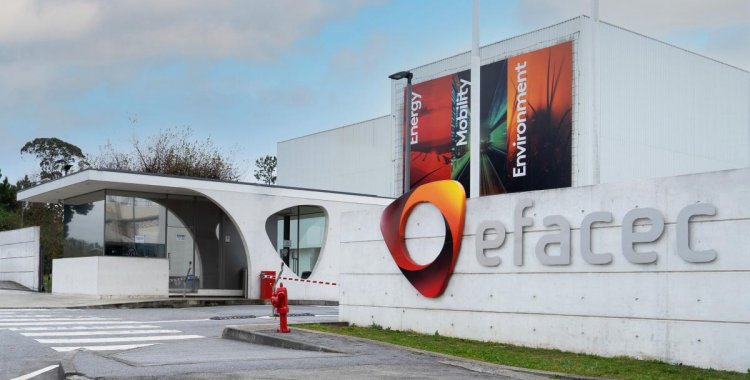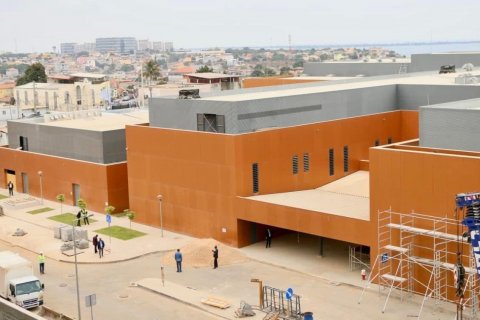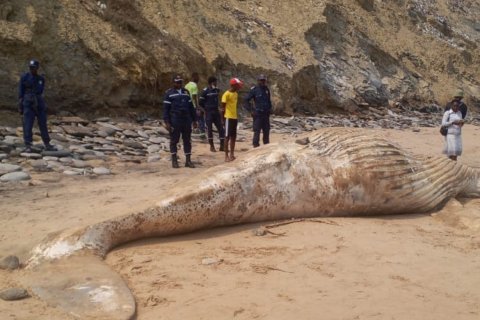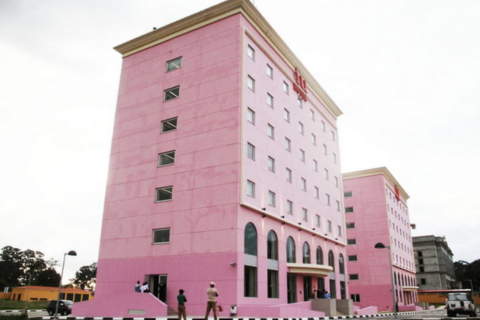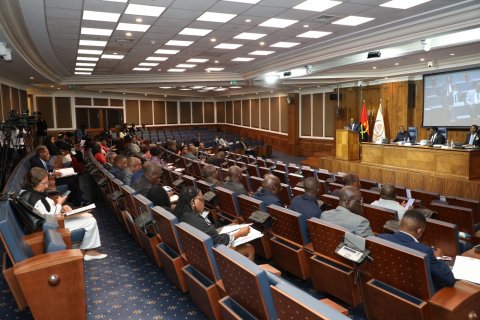For Cedesa, "Efacec's situation is linear. Nothing will be returned to the Angolan State, because the company was in a negative net situation when it was nationalized" by the Portuguese State.
This conclusion is contained in the latest report by the group of academics entitled "The problem of recovering Isabel dos Santos' assets in Portugal", which Lusa had access to this Sunday.
But it's not the only one. In the same document, the group of academics also argues that it is unlikely that the Angolan State will be able to obtain any benefit from the sale of Isabel dos Santos' majority stake in Eurobic to the Spanish company Abanca.
"The essential conclusion reached is that the recovery of Isabel dos Santos' assets in relation to Eurobic can happen in the long term, but it is very fragile", they state.
In relation to Efacec, Cedesa analysts consider that, as the company was nationalized in 2020, "there will only be a right to compensation in accordance with the value of the respective rights, assessed in light of [the company's] asset and financial situation at the time of the entry into force of the nationalization act".
And the calculation of the compensation to be given to the holders of nationalized corporate interests, "the value of the respective rights, is determined taking into account the effective net worth", they add.
Now, according to a recent report by the Portuguese Court of Auditors, "public financing of 484 million euros was necessary, with the risk of rising to 564 million euros", for Efacec, so "it can easily be concluded that the value at the time of nationalization [of the company] was negative", they argue.
"There being", therefore, "nothing to compensate the owners of the company [Isabel dos Santos] or to anyone who owes it as a result of any criminal proceedings [Angolan State]", they conclude.
With regard to EuroBic, Cedesa recalls that, when Isabel dos Santos' stake in the Portuguese bank EuroBic was sold to the Spanish bank Abanca, companies were identified that included the bank's former shareholder and daughter of former president José Eduardo dos Santos as final beneficiary, as Santoro Financial Holding, SGPS, S.A., with 25 percent of the bank's share capital, and Finisantoro Holding Limited, with 17.5 percent of the bank's capital, which totals 42.5 percent.
These holdings were subject "to a preventive arrest decreed in several Portuguese criminal cases", he highlights.
Furthermore, according to available public information, "the amount received by Isabel dos Santos from the sale to Abanca, of 127.5 million euros, will have been seized under the previous terms of participation, although the exact terms are not entirely clear".
So, in relation to a possible recovery of this asset, the report points out that "preventive seizure is a criminal procedure measure, which seeks to guarantee payments that the accused will receive in the future", namely referring to pecuniary penalties, process costs or other debts to the State related to the crime.
So "it is a provisional measure that can be revoked by a judge or declared extinct". And "what is certain" for Cedesa "is that this arrest does not factually guarantee that, in the end, the Angolan State will receive any of these amounts, whether because the criminal proceedings in Portugal are not concluded, are time-barred or even because Isabel dos Santos is acquitted", he concludes.
Therefore, he argues that "the amount will only be definitively removed from Isabel dos Santos' sphere in the event of a final and unappealable conviction in the aforementioned cases, which will probably take ten years or more."
In case of "prescription, acquittal or archiving" of the processes, this implies "the delivery of the amounts to Isabel dos Santos", he highlights.
Even in the event of Isabel dos Santos' conviction, as these processes are taking place in Portugal, "the costs associated with them will first be reimbursed by the Portuguese State".
In short, "indeed, there is a legal weakness in the measures taken by the authorities of both countries in relation to Isabel dos Santos, which may have the consequence that, over time, there will be no benefits from all this judicial action, at least, for Angola", concludes Cedesa.
In fact, for the group of analysts, in most cases, the recovery of Isabel dos Santos' assets in Portugal "is distant" and depends on "legal vicissitudes", and only the triggering of the so-called "confiscation without judicial conviction", provided for in the Portuguese Penal Code, could lead to the State appropriating the former president's daughter's assets.

